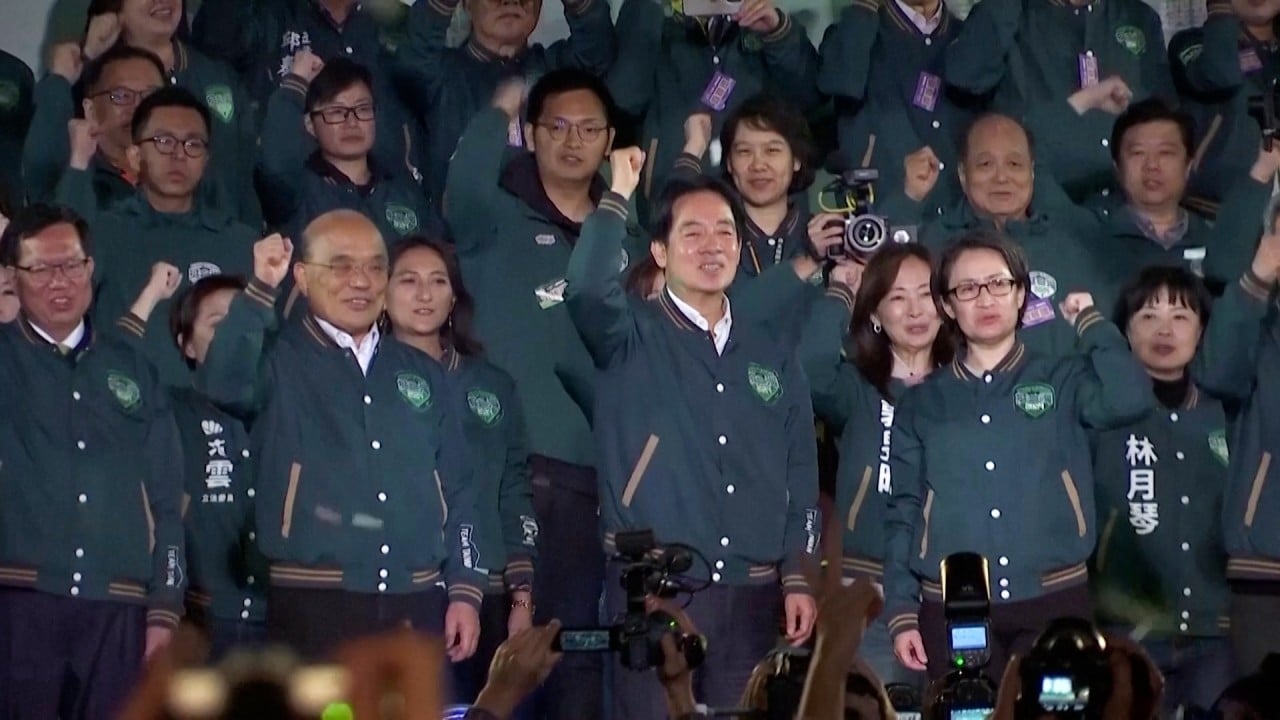
Ukraine envoy offers support for one-China principle in Beijing talks
- Ambassador Pavlo Riabikin said Kyiv was willing to strengthen cooperation with Beijing in meeting with Chinese foreign vice-minister
- China and Russia held talks in Moscow the same day, exchanging views on strategic cooperation, Brics and other international and regional issues
Pavlo Riabikin, the Ukrainian envoy, made the remarks in a meeting with Chinese foreign vice-minister Sun Weidong in Beijing on Monday.
“Ukraine attaches great importance to the development of relations with China, has consistently adhered to the one-China principle, and is willing to strengthen exchanges and cooperation with the Chinese side,” Riabikin said, according to a Chinese foreign ministry readout.
In response, Sun said the two countries had maintained steady diplomatic relations since ties were established 32 years ago. He said they should “take a long-term view, respect each other, treat each other in good faith and promote stable and far-reaching bilateral relations”.
The Chinese readout also said the two sides had “exchanged views on issues of common concern, including the Ukraine crisis”.

Ma Zhaoxu, another Chinese foreign vice-minister, and his Russian counterpart Sergei Ryabkov had a “substantive” discussion on a range of issues including international security, arms control and non-proliferation, Russia’s foreign ministry said in a statement.
A Chinese foreign ministry statement on Tuesday said Ma had an “in-depth exchange of views with the Russian side on China-Russia relations, strategic cooperation, their respective external relations, the maintenance of strategic stability, cooperation under Brics and other international and regional issues”.
Noting that the two countries will mark 75 years of diplomatic ties in 2024, Ma told Ryabkov that “China is willing to work with Russia … to push forward new developments” in the relationship.
As the war rages on, a top diplomatic adviser to Ukrainian President Volodymyr Zelensky told Reuters last week that Ukraine had invited Chinese President Xi Jinping to join other world leaders at a “peace summit” in Switzerland.
“We are definitely inviting China to participate in the summit, at the highest level, at the level of the president of the People’s Republic of China,” Ihor Zhovkva was quoted as saying.
“China’s participation will be very important to us. We are working with the Chinese side. We involve our partners in the world so that they convey to the Chinese side how important it is to participate in such a summit.”
Switzerland is hosting the summit at the request of Zelensky, but no date or venue has been announced.
Sink or swim: China watches on as Russia’s economy battles Western sanctions
China has sought to portray itself as neutral on the war in Ukraine, but its growing strategic coordination with Russia and a reluctance to condemn Putin has drawn scrutiny from the West.
The war has prompted sanctions, export controls and energy price caps in a Western-led effort to isolate Russia. It has also fuelled speculation that Taiwan – the self-governed island Beijing has vowed to bring under its control – could become the next Ukraine.
Most countries, including the US and Ukraine, do not recognise Taiwan as an independent state, but Washington is opposed to any attempt to take the island by force and is committed to arm Taiwan.


